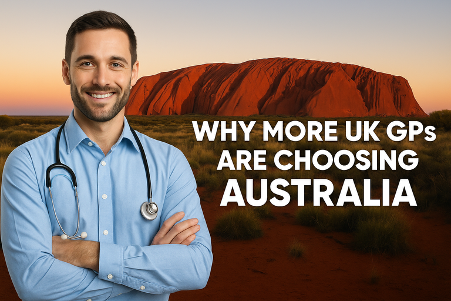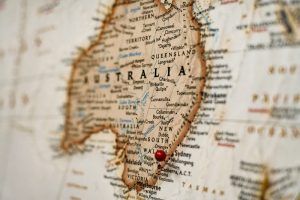My story – a UK doctor moving to Australia

UK Doctor Moving to Australia
By Dr Andrew Gore
Describe Your Current Role?
I am currently working as a psychiatry registrar in Townsville. I am currently posted to the Rural, remote and indigenous team. I am supporting various different teams across multiple locations with psychiatric assessment and treatment.
“The salary is considerably higher in Australia than the UK.”
I am also part of the Intellectual disorders and developmental clinic. I have a further educational role for junior doctors.
What is interesting about the role?
I get to travel a fair bit – I’m flown regularly to Palm Island to support the team there. The island has a fascinating living history and a unique challenges. It is like no other psychiatric experience I have had in the UK.
We often need to use telepsychiatry which I was at first skeptical about but have now embraced. I have had to learn to work with a new level of geographical barriers.
As a UK doctor moving to Australia, I have found the Australian culture to be surprisingly different to UK which in itself has been enlightening.
I have been able to use my British training experiences to try and improve psychiatry training generally and to staff in remote locations .
Importantly, I have felt really valued, respected and rewarded for my work here. I have quickly been recognized as someone who can help develop the service and have been given the opportunities to do so
How does the role benefit your training?
I have found it immensely beneficial to work in another system. I can compare and contrast differences in service. I can also develop my own leadership skills and systemic understanding. Working in another country has widened my experience and perspective of mental health care.
We often need to use telepsychiatry which I was at first skeptical about but have now embraced.
Describe the location you are currently working? What do you like about the location? UK doctor moving to Australia, how is it different to what you expected?
“I would definitely recommend working in Australia.”
I am working in Townsville located in tropical North Queensland. I had not heard about the city before researching jobs in Australia. It is a beautiful, hot and permanently sunny part of the world. It has been a great place to live with my young family. We swim in our pool on most days and have plenty to do. The city itself is has most things that one needs without being a metropolis. There is no traffic and the place is calm and quiet mostly. There are endless stretches of sandy beaches. I could not ask for more. I do not feel cut off from the rest of the world but feel far enough away for it to be a unique experience.
How did you find the role?
The relocation process to Australia is fairly complex (AMC – AHPRA – College – Visas). Agencies aim to make this process quicker and easier for doctors. Would you agree with this?
I was recommended Medipeople by a colleague. They asked what I was looking for and were able to advise on what was available. They were attentive and responsive to emails.”
It can be complicated and I would allow yourself at least 6 months to prepare for the trip. I came to Australia for an out of program experience year (OOPE). I required permission from the deanery and college before arranging the job. Often the college and the deanery need details about the Job before they can approve and so coordinating these and getting role descriptions etc may require the help of an agency like medipeople. The agency guided me through the application process and what was required. It can cost a fair amount of money to arrange a medical, VISAs and AHPRA etc. Many recruitment places will offer reimbursements for this.
As a UK doctor moving to Australia, arriving in Australia will require some setup costs also. I needed to get a car fairly quickly and to arrange accommodation. In total I spent more than the $5000 reimbursement for moving fees. The salary is considerably higher in Australia than the UK and so that deficit quickly normalizes. Many places will offer support with the initial move like temporary accommodation and a rental car etc. I managed to make the move with my wife and two children under 3 years old. It was a lot of work but I am so pleased we did it.
Are you a UK doctor moving to Australia? Register now for the best doctors positions in Australia and New Zealand!
Also check out our other articles:











